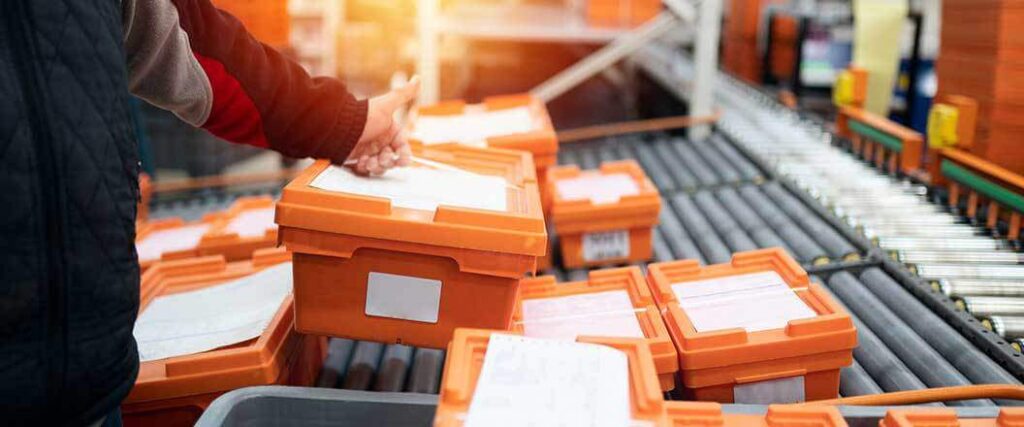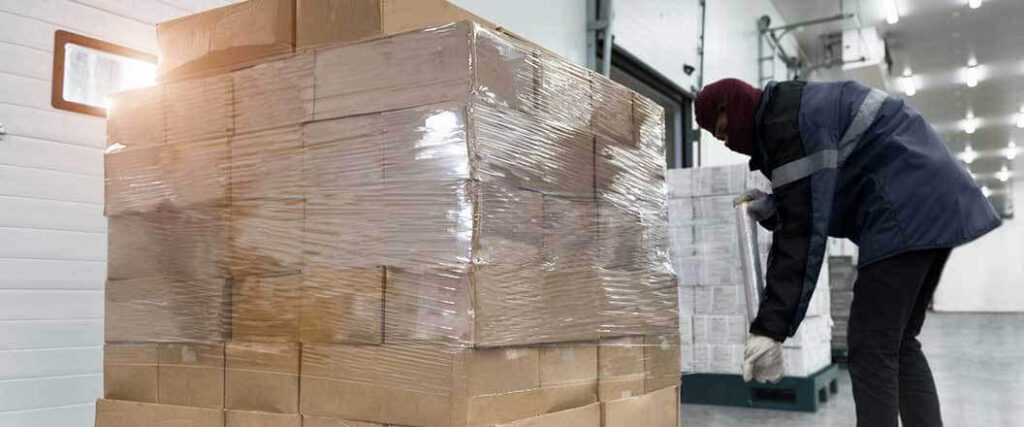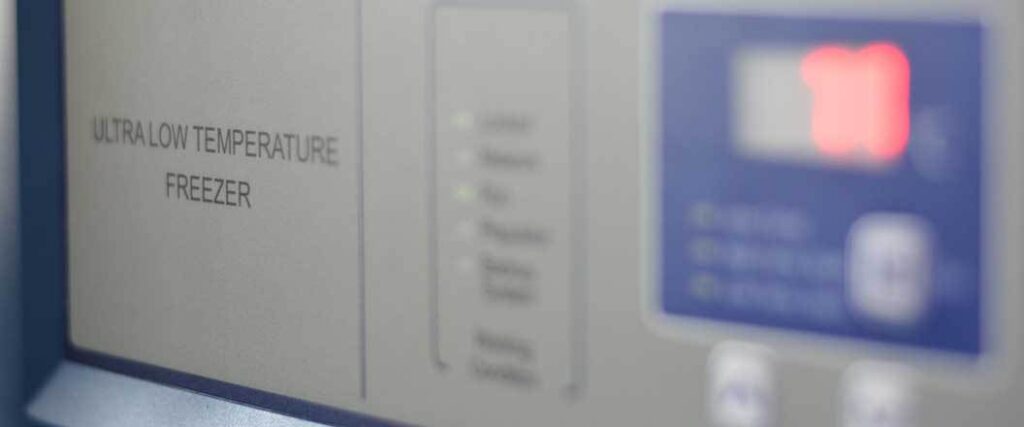Cold chain vaccine transportation has been in the spotlight in recent years. Even though modern vaccines have been around for decades, many people are still learning how many steps are involved in ensuring they stay safe and effective when needed. This includes making sure that transportation services are up to the task.
The U.S. Centers for Disease Control and Prevention (CDC) publishes a vaccine handling guidebook that covers transport rules. The World Health Organization (WHO) also has vaccine shipping guidelines to protect the international transport and distribution of vaccines. Guidelines cover proper packaging and transport services.
Learn how medical cold chain logistics serve the community by keeping to strict standards in all situations.
Vaccines have made it possible to greatly minimize or even eradicate certain diseases. However, the CDC recognizes that for people to take vaccines, they need to trust them first. The main goal of vaccine cold storage and handling is to make sure that they are as safe and effective as possible.
Cold chain vaccine distribution takes into account factors such as:
Whether you need to transport vaccines domestically or overseas, these details impact travel arrangements.

The CDC recommends that all vaccines be transported within refrigerated units that have a temperature monitoring device (TMD).
Within the transportation industry, this can include reefer containers set to specific temperatures. If a refrigerated unit isn’t available, it’s possible to transport vaccines within insulated coolers or boxes as long as the right temperature is achievable.
The most common ways to transport vaccines are with:
It really doesn’t matter what form of transportation is used. The most important thing is for the vaccine doses to remain within the manufacturer’s recommended temperature range. For most vaccines, this means a temperature between 39॰ to 41॰ Fahrenheit.
There are some vaccines that need to stay frozen until use and cannot be refrozen if thawed. These need to stay at temperatures between -58॰and 5॰ Fahrenheit.
Keeping temperatures stable is the most important part of the shipping process. Besides making sure that the refrigeration units are up to standards, the CDC has a list of other recommendations. These are especially important if a powered refrigeration system isn’t available.
To ship vaccines and diluents safely the CDC also recommends the following:
If vaccines are being delivered to multiple locations in a day, it would be a good idea to look into refrigerated LTL freight service in the area. With the right size reefer truck or van, these companies can better manage strict temperature control needs.
Most drivers of reefer loads are also familiar with the best practices applied to most types of reefer freight.
These include practices such as:
A vaccine that is kept at the right temperature has a greater chance of being effective when given to patients. Poorly transported or stored vaccines result in inadequate immune responses in patients. In simple terms - bad vaccines mean more shots per patient to achieve a decent degree of immunity.
Not only are actions like this wasteful, but they lower people’s confidence in the ability of vaccines to provide protection. The right cold chain logistics service really does make a difference in the big picture.
There are times when ideal procedures aren’t possible. Any non-routine vaccine transport can be considered an emergency. The health staff at any location that stores vaccines should have a set plan in place to follow.
Situations that may need emergency vaccine transport services include:
If there isn’t any power to run refrigerators and freezers, vaccines will go bad. It can be hard to find an emergency logistics service last minute, especially a refrigerated one. The goal is still to keep storage conditions stable, but without power that’s not so simple.
The CDC guidelines allow for the use of different types of cooling methods, such as frozen water bottles and standard hard coolers. Even the original shipping boxes are allowed if available.
These methods are only allowed during emergencies and containers still need to have TMDs for tracking purposes.
An emergency is different from a mass vaccination effort. When Covid-19 vaccines were being distributed, transport services were still expected to follow the CDC’s standard guidelines along with any specific manufacturer’s recommendation.

The CDC has published guidelines that provide recommendations for the storage, transport, and distribution of vaccines. We’ve reviewed these for best practices during transport.
The CDC has no direct authority to regulate or enforce cold chain vaccine distribution.
If a shipper or carrier doesn’t follow the CDC guidelines, there aren’t any legal actions or fines that the CDC can take against them. This doesn’t mean there aren’t consequences, just that they usually aren’t the legal kind.
Both shippers and carriers can be held financially responsible for damaged vaccines. Vaccines are expensive commodities. Even a small doctor’s office may have several thousands dollars worth of vaccines at any one time.
Financial impact can come in the form of:
As a shipper, you want to maintain a good reputation with your clients. A large part of that is selecting a refrigerated freight service that can follow through with proper cold chain vaccine distribution.
A vaccine cold chain actually starts with the manufacturer. They are the ones developing and producing the product, so they determine the best temperature to keep vaccines viable.
The vaccine cold chain is maintained when everyone involved follows the rules and procedures for safe storage and distribution throughout the supply chain.
The vaccine supply chain begins with the manufacturer and ends with local level distribution to the community. Sometimes that means that vaccines need to travel thousands of miles from their point of origin.
Like many refrigerated products, vaccines also have expiration dates. Aside from keeping the temperature constant, a vaccine cold chain has to run on a strict schedule.
It’s important to become familiar with popular vaccines and their temperature needs. Since reefer carriers take their direction from the shipper, you are the one that needs to make sure the paperwork is done right.
| Vaccine | Temperature Range | Product Warnings |
| Diptheria and Tetanus Toxoid | 36॰ - 46॰ F | Freezing not recommended |
| Hepatitis A & B | 36॰ - 46॰ F | Never Freeze |
| Pertussis (DTaP, Tdap) | 34॰ - 43॰ F | Never Freeze |
| Rabies | -4॰ - 140॰ F | Shelf Stable |
| Meningococcal (A and C) | 36॰ - 46॰ F | Highly Unstable |
| Hib Conjugate | 36॰ - 46॰ F | Never Freeze |
| MMR | 36॰ - 46॰ F | Safe to Freeze/Refreeze |
| Covid-19 | -130॰ to -76॰ F | Don’t Refreeze |
| Varicella (Chicken Pox) | -58॰ - 5॰ F | Must Freeze |
Vaccines that require freezing, like ones for chicken pox or Covid-19, are thawed before use. The below-freezing temperatures are more for long-term storage. However warmed up enough, they usually have to be used within a few weeks to still be effective.
Mass immunization programs, like the one for Covid-19, have used strict appointment systems because of how quickly the vaccine becomes ineffective.
Vaccine cold chains are part of a greater medical cold chain logistic service. Refrigerated freight is common in the medical field and used for much more than vaccines. The medical cold chain includes medications as well as sensitive technology.
Common reefer freight in the medical cold chain includes:
Some of these items require chilled temperatures. Others simply need sustained room temperatures. Since regular dry van trailers can get up to 30 degrees higher than outside temperatures, a reefer trailer is best.

Vaccines have to be kept at their manufacturer recommended temperature to remain effective. This usually means that the vaccine needs to be kept chilled or frozen.
A vaccine that isn’t kept at the right temperature isn’t likely to harm the person getting it, but it also isn’t doing much good. Poor efficiency means it won’t be effective at fighting off disease at a later date.
Keeping vaccines chilled or frozen also provides a chemical free way to preserve vaccines long-term. Prior to improved refrigeration services a variety of preservative chemicals were used, including certain mercury based compounds.
Although used safely, public opinion has shown that fewer such chemicals are much preferred. Cold storage and transport solutions make that possible.
Vaccines have helped modern society live longer and more disease free lives. Cold chain vaccine transport services are a small but significant part of making life-changing products available everywhere.
USA Refrigerated Freight is here to help you become a part of the chain. Whether you need to move vaccines to another city or another country - we have the cold chain logistics experience to make it happen.
Give us a call today at (866) 849-4923 to speak with one of our cold chain logistics experts. If you already have a shipment in mind, take a moment now to complete this form and get a direct quote.
USA Refrigerated Freight
315 NE 14th Street #4122
Ocala, FL 34470